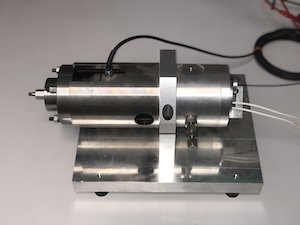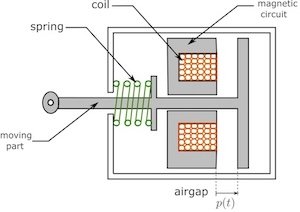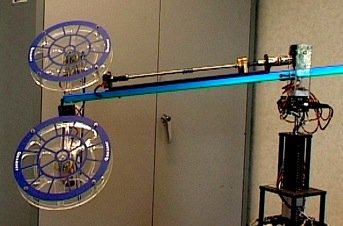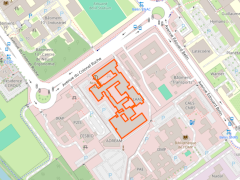Méthodes et Algorithmes en Commande
- mac -
LES NEWS DE L’ÉQUIPE
L'équipe MAC est une équipe d’automatique des systèmes dynamiques : analyse et synthèse de lois de commande, estimation d’état ou de paramètres dans une grande variété de systèmes.
Systèmes
L'équipe MAC étudie des systèmes linéaires ou non-linéaires, de dimension finie ou infinie, hybrides, soumis à saturations, incertitudes, commutation, quantification spatiale ou temporelle, retard, etc.
Lois de commande
L'équipe MAC s'intéresse à des lois de commande en boucle ouverte ou fermée, par retour d'état ou de mesures, robuste, adaptative, hybrides, non-linéaires, événementielle, décentralisée, etc.
Propriétés et objectifs
Pour les systèmes variés étudiés en vue de leur commande, l'équipe MAC s'intéresse à des questions de bien posé, de propriétés asymptotiques ou transitoires, de convergence, de performances, etc.
Méthodologie
Les méthodes utilisées ou développées par l'équipe MAC pour analyser ou synthétiser des lois de commande se basent sur la théorie de Lyapunov en vue de la proposition de certificats.
Responsable
Cadre scientifique
Post-doctorant
Accueil Thèse
Dernières Publications
2025
Articles dans une revue
Communications dans un congrès
Pré-publications, documents de travail
2024
Articles dans une revue
Livres
Chapitres d’ouvrages
Communications dans un congrès
Autres documents
Yassine Ariba, Frédéric Gouaisbaut. Chaîne YouTube Capsules Automatique. 2024. ⟨hal-04902796⟩
Pré-publications, documents de travail
2023
Articles dans une revue
Communications dans un congrès
Autres documents
Brevets
Rapports
Pré-publications, documents de travail
2022
Articles dans une revue
Livres
Chapitres d’ouvrages
Communications dans un congrès
Pré-publications, documents de travail
2021
Articles dans une revue
Communications dans un congrès
Pré-publications, documents de travail
2020
Articles dans une revue
Livres
Communications dans un congrès
Rapports
Pré-publications, documents de travail
Les éléments ci-dessous concernent l'implication des membres de MAC à la date de mise à jour de la page dans différentes instances aux niveaux international et national.
International
Editeurs / Editeurs associés
- IEEE-TAC Editorial Board : A Tanwani (Associate Editor)
- IFAC-Automatica : L Zaccarian (Senior Editor), S Tarbouriech (Senior Editor & Deputy Chief Editor)
- SICON : S Tarbouriech (EA)
- ESAIM-COCV : L Baudouin (EA)
- EJC : L Zaccarian (EA)
- ECC CEB : L Zaccarian (membres) D Peaucelle (IPC Chair ECC20)
- IEEE-CSS-CEB : G Garcia, D Peaucelle, I Queinnec (membres)
- IFAC-POL : D Peaucelle (Deputy Editor-in-Chief)
Sociétés savantes
- IEEE-CSS TC on Hybrid Systems : A Tanwani, S Tarbouriech, L Zaccarian (membres)
- IEEE-CSS TC CACSD : D Peaucelle (membres)
- IEEE-CSS BoG : L Zaccarian (membre élu)
- IFAC TC Nonlinear Control Systems : A Tanwani, S Tarbouriech, L Zaccarian (membres)
- IEEE-CSS TC on Nonlinear Systems and Control : L Zaccarian (membre)
- IEEE-CSS TC SU : D Peaucelle (membre)
- IEEE-CSS : L Zaccarian (Electronic Information Committee)
- IFAC Policy Committee : D Peaucelle (membre)
- IFAC TC Biosystems and Bioprocesses : I Queinnec (membre)
- IFAC TC Distributed Parameter Systems : L Baudouin (membre)
- IFAC TC Modelling and Control of Enviromental Systems : I Queinnec (membre)
- IFAC TC Robust Control : D Peaucelle, S Tarbouriech (membres)
National
- DAS INS2I : I Queinnec
- CN S07 : S Tarbouriech
- CS INS2I : L Baudouin
- CNES COMET SCA : D Peaucelle (co-animateur)
- GdR MACS : D Peaucelle (directeur)
SOFTWARE
- SATAW-Tool - Matlab Toolbox for analysis and controller design in presence of saturation elements in the control loop. LMI based functionalities are provided, where sector conditions are used for the saturation modeling. It is entirely written in Matlab and uses YALMIP for parsing LMIs, the optimization problems being solved using any SDP free solvers supported by YALMIP ou using LMILAB (not recommended for relatively high dimension problems). Can be freely downloaded and used. Developed by Isabelle Queinnec and Sophie Tarbouriech
- R-RoMulOC - Randomized and robust multi-objective control toolbox for Matlab. Modeling and robustness analysis based on LMI techniques. Works with parser YALMIP, all control problems are solved by SDP solvers such as SeDuMi, CSDP, DSDP, SDPT3... Can be freely downloaded and used. Main developer: Dimitri Peaucelle.
ELECTROMAGNETIC ACTUATOR

In the context of an R&T projects with the CNES, Launch systems department, an actuator was developed by the company CSTM and we were in charge of the design of the control system . Although initially designed for a pressure reducer system for propellant tank pressurization for launchers, this electromagnetic actuator is versatile and can be used in various applications such as satellite pump or active vibration damping. More generally, it is an electrical linear positioner.

The system consists in a coil winding a magnetic circuit with two parts: a fixed frame and a moving part. The voltage at the coil terminals is the control variable, and the resulting current induces a magnetic force which tends to close the airgap. The spring is used to counteract the magnetic force and pushes the moving part to the left. For instance, the objective can be to design control laws that ensures the actuator’s moving component accurately tracks a predefined reference trajectory.
HELICOPTER BENCHMARK
The Helicopter setup consists of a base on which a long arm is mounted. The arm carries the helicopter body on one end and a counterweight on the other end. The arm can tilt on an elevation axis as well as swivel on a vertical (travel) axis. Quadrature optical encoders mounted on these axes measure the elevation and travel of the arm. The helicopter body, which is mounted at the end of the arm, is free to pitch about the pitch axis. The pitch angle is measured via a third encoder. Two motors with propellers mounted on the helicopter body can generate a force proportional to the voltage applied to them. The force, generated by the propellers, causes the helicopter body to lift off the ground and/or to rotate about the pitch axis. All electrical signals to and from the arm are transmitted via a slipping with eight contacts. The system is also equipped with a motorized lead screw that can drive a mass along the main arm in order to impose known controllable disturbances (the so-called Active Disturbance Option, ADO).

This Helicopter is a Quanser product.
Thèses / HDR soutenues
2024
Olga Iufereva, Thèse: Algorithmes de filtrage avec les observations distribuées par Poisson
2023
Florent Koudohode, Thèse: Commande basée évènement pour quelques équations aux dérivées partielles
2022
Mathieu Bajodek, Thèse: Analyse de stabilité de systèmes linéaires EDO-EDP interconnectés
2021
Mathias Serieye, Thèse: Contributions à la stabilisation des systèmes à commutation affine
2020
2019
Sabrina Hadjeras, Thèse: Commande hybride pour des convertisseurs de puissance
2018
Mohammed Safi, Thèse: Stabilité de Lyapunov de systèmes couplés impliquant une équation de transport
2017
Harmonie Leduc, Thèse: Contrôle adaptatif robuste. Application au contrôle d'attitude de satellites
2016
Saïd Zabi, Thèse: Modélisation et commande de l’anesthésie en milieu clinique
2015
DÉPARTEMENT
Emplois / Stages
REJOINDRE
Notre équipe de recherche
Pour plus d’informations sur les offres d’emploi, vous pouvez contacter













